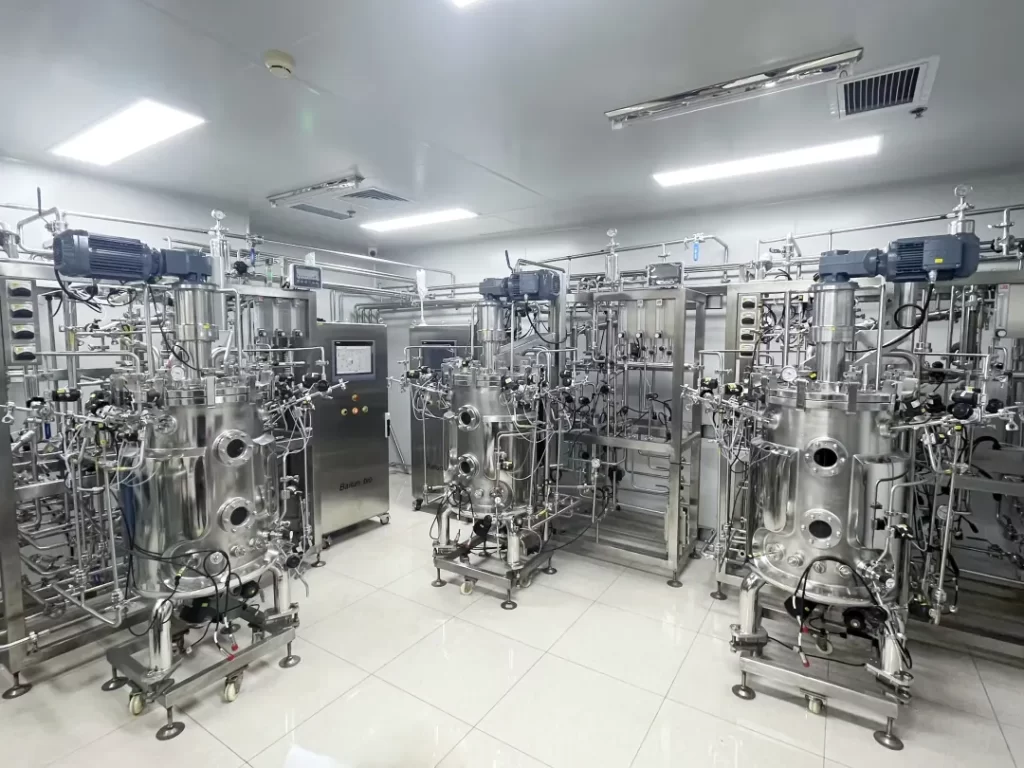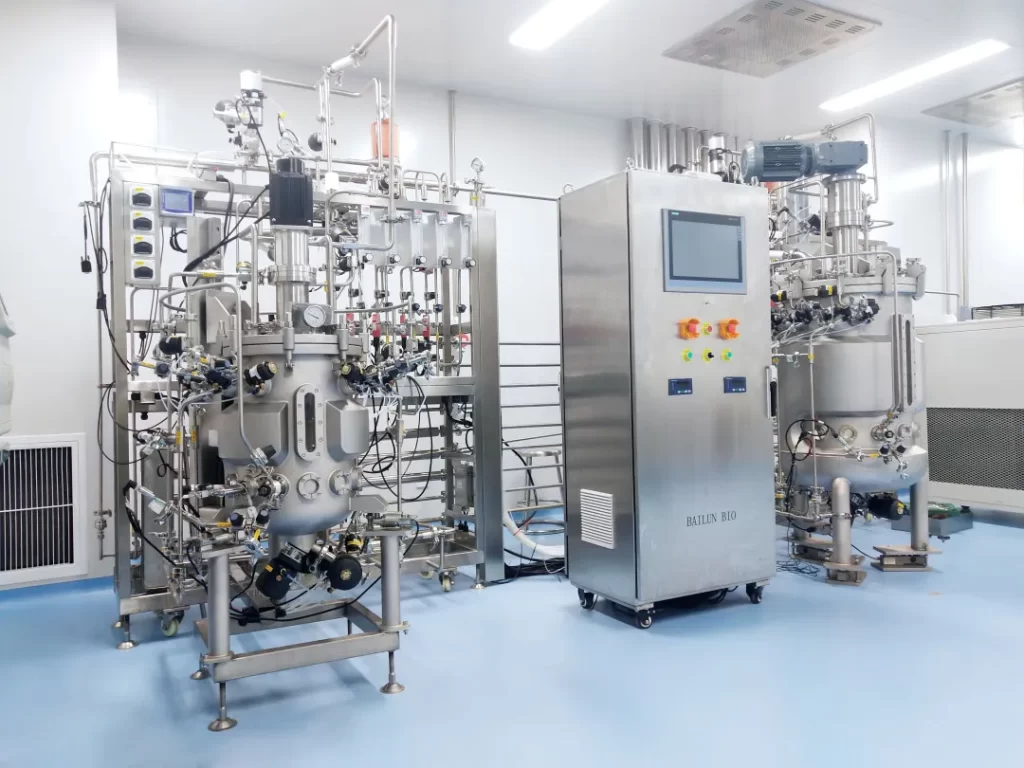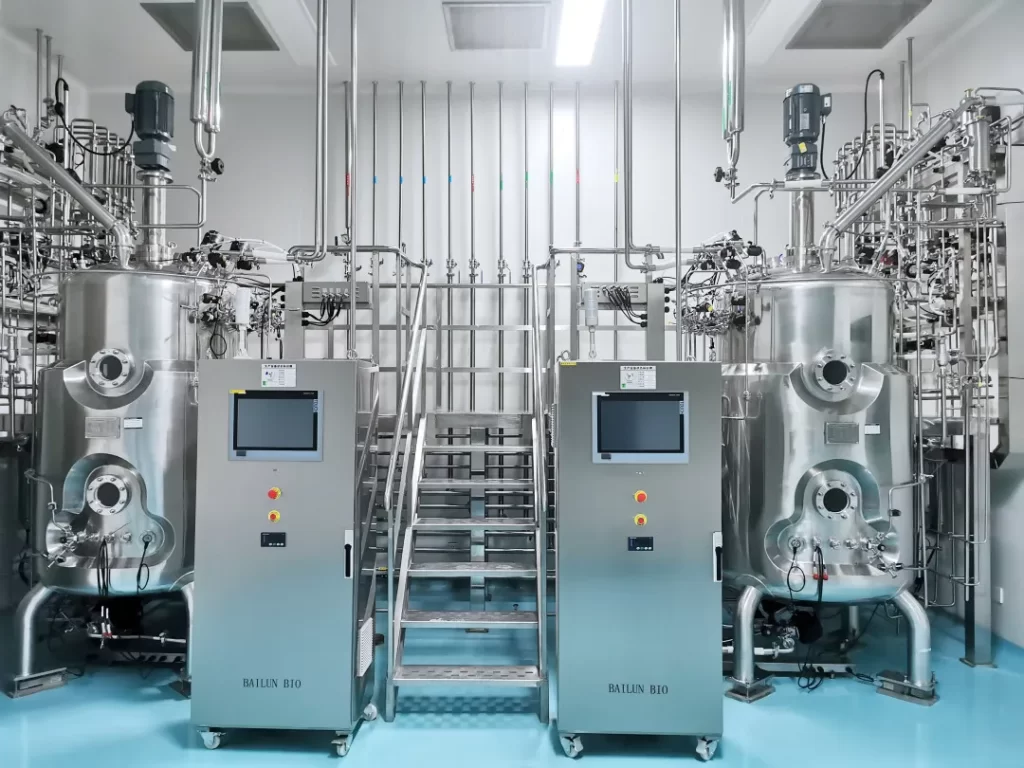Mammalian cells have been used as carriers for the production of therapeutic proteins for decades. Therapeutic proteins are widely used in the diagnosis and treatment of diseases, forming a huge market. The global biopharmaceutical market was valued at USD 237.2 billion in 2018 and is expected to reach USD 389 billion by 2024, registering a CAGR of 8.59% during the forecast period 2019-2024. Between 2006 and 2010, about 55% of biopharmaceuticals were expressed in mammalian cells, and between 2010 and 2014, 60% of recombinant therapeutic proteins were also expressed in mammalian cells. Among them, monoclonal antibody drugs have the largest number, and the global monoclonal antibody market size reached about 164 billion US dollars in 2019, accounting for more than 50% of the global biological products, making it the largest sub-industry in the global biological products industry. Therefore, the increasing demand for protein products produced from mammalian cells has made the research and development of large-scale animal cell culture technology an important task in the field of biopharmaceuticals.
1.Optimization and scale-up of cell culture process based on multi-scale parameter correlation analysis
Over the past 20 years, the biomanufacturing industry has seen a lot of improvements in process control. The stirred bioreactor is mainly controlled by computer, and equipped with online sensors such as pH electrode, dissolved oxygen electrode, tail gas spectrometer, and live cell sensor, to realize the collection of various parameters such as viable cell volume, concentration of extracellular metabolites such as glucose, lactic acid, ammonia and glutamine. With the increasing maturity of PAT process control technology, the combination of online sensors with the system model of cell physiological state, and the introduction of omics technology, through the establishment of process data processing methods, classification and in-depth analysis of data, can achieve data-driven guided process control and ensure product quality. After years of research, Zhang Siliang et al. proposed a set of theories based on multi-scale correlation parameter analysis of genes, cells and reactors. The complex biological processes in bioreactors are divided into gene scale, cell scale and bioreactor scale, and there are information flow, material flow and energy flow between different scales. By studying the nonlinear relationship between them and the impact on the whole system, we can find out how to solve the process optimization scale-up.
Parameter correlation analysis refers to the coupling correlation between environmental and physiological parameters, state parameters and process parameters, direct and indirect parameters, online parameters and offline parameters in biological processes. Performing multiscale parameter correlation analysis includes several important steps:
1) Simplify the system, collect variables in the culture process through a data acquisition system, and then conduct data-driven studies to analyze the relationship between various parameters and observe them across scales. These steps are a multi-scale approach to enable cell metabolic analysis and control-centric research. Therefore, it can be seen that online monitoring of biological processes and obtaining a large number of online parameters is an important step to achieve multi-scale correlation analysis. However, these parameters exhibit discrete, complex, and nonlinear characteristics, mainly due to the complex cellular metabolism and the combined effect of responses to the environment. Some subtle differences that accompany the progress of biological processes can produce large differences in the results, showing the instability of the system. Therefore, it is necessary to shift from macroscopic physiological metabolism (correlation between parameters at different scales) to microphysiological metabolism (genome, transcriptome, proteome, metabolome) in order to better optimize and amplify biological processes.
2)Through the correlation between the physiological and metabolic characteristics of cells and the flow field characteristics of bioreactors, the optimization and amplification of biological processes can be further realized. The scale-up of biological processes consists in the transition from laboratory-scale bioreactors to large-scale bioreactors and the reproduction of the optimal physiological state of the cells. Therefore, achieving changes in key parameters in small-scale reactors can enhance the success rate of process scale-up. In this process, the flow field characteristics of the bioreactor need to be studied.
2.Intelligent manufacturing of large-scale cell culture process
In large-scale animal cell culture, the biological reaction process of living cells has complex physiological and metabolic properties, so it is important to perform multi-scale correlation parameter analysis of cell culture processes in bioreactors. However, there are still some limitations to the application of this theory in the era of big data. In the actual production process, it is extremely difficult to process the massive data generated during the analysis of multi-scale parameters of cells and the various sensor data obtained during the reaction process, and it is a time-consuming and laborious task to find the key causal relationships in these data and propose corresponding process optimization strategies. Therefore, it is necessary to apply machine learning to the analysis and decision-making of bioprocess big data.
In the face of large-scale and diversified culture of animal cell lines, the intelligent control of the culture process can be realized by developing various new animal cell reactors and formulating personalized and parallel culture strategies. Bioreactor coupled with online sensors, especially spectral sensors, such as online Raman analyzers, online mid-infrared analyzers, online fluorescence analyzers, etc., are gradually being applied to industrial process analysis. In the implementation of multi-scale bioprocess optimization, a large amount of data will be generated through online Raman spectroscopy, online fluorescence spectroscopy and online mid-infrared spectroscopy, especially the online data contains a large number of process-related information, and in the future, literature data and omics data can be used to form a knowledge map, and through machine deep learning, the cell culture process can be guided. In 2018, the “automatic stem cell induction culture equipment” was successfully developed, which realized the automatic induction of cells judged by machine learning and artificial intelligence algorithms for the first time, and established equipment technology from cell culture, microscopic online observation, pipetting and liquid exchange, algorithm identification, clone picking and equipment control, and realized the functions of automatic induction culture, expansion, imaging, and downstream differentiation of induced pluripotent stem cells, while reducing the cost of stem cell production The high quality of cell preparation lays the foundation for the production of large-scale biological products.
The era of big data has arrived, and intelligent biomanufacturing based on big data is in line with the development trend of the biomanufacturing industry, and with the continuous development of biosensing technology, more and more bioprocess data can be obtained. Through the processing of artificial intelligence, the relationship between information flows at different scales can be mined from the data, so as to achieve truly intelligent biomanufacturing.
About BaiLun Biotechnology Co., Ltd:
BaiLun Biotechnology Co., Ltd. stands as a leading supplier and premier technical service provider, specializing in the provision of comprehensive bioreactor systems and advanced control solutions. Our extensive product line encompasses a wide array of offerings, ranging from bioreactors (fermenters) to animal cell bioreactors, biological shakers, and control systems tailored for bioprocessing applications. With a capacity spanning from 0.1L to 1000KL, we are committed to fostering the growth of China’s bioreactor industry on a global scale.
At BaiLun, we boast a seasoned team of engineers equipped with profound expertise in fermentation processes, biochemical equipment, and chemical technology. Moreover, we actively engage nationally renowned experts and scholars as technical consultants, ensuring the robust technological underpinnings of our products. Central to our ethos is a relentless pursuit of product innovation and technological leadership, all geared towards guaranteeing utmost customer satisfaction. We hold ourselves accountable to prioritize customer benefits, embodying this commitment as the cornerstone of Bailun Company’s core values.
Our diverse product portfolio is meticulously crafted to cater to the multifaceted demands of our clientele. From inception, we have upheld the principles of quality paramountcy, customer-centricity, and integrity-driven operations. It is our unwavering dedication to meeting the evolving needs of our customers that propels us forward. Embracing the tide of economic globalization, we extend a genuine invitation to collaborate with enterprises worldwide, aiming for mutual prosperity and success.
The spirit of BaiLun encapsulates a dedication to customer-centricity, a pursuit of excellence in quality, a commitment to fairness and integrity, and an unwavering drive for continuous improvement and innovation.
Contact Us:
Add:6848# Liuxiang Rd., Jiading, Shanghai, China
Contact Person: Maddie
Email:[email protected]
Phone:+86-134-7276-8163 (WhatsApp)
Website: https://fermentorchina.com/



